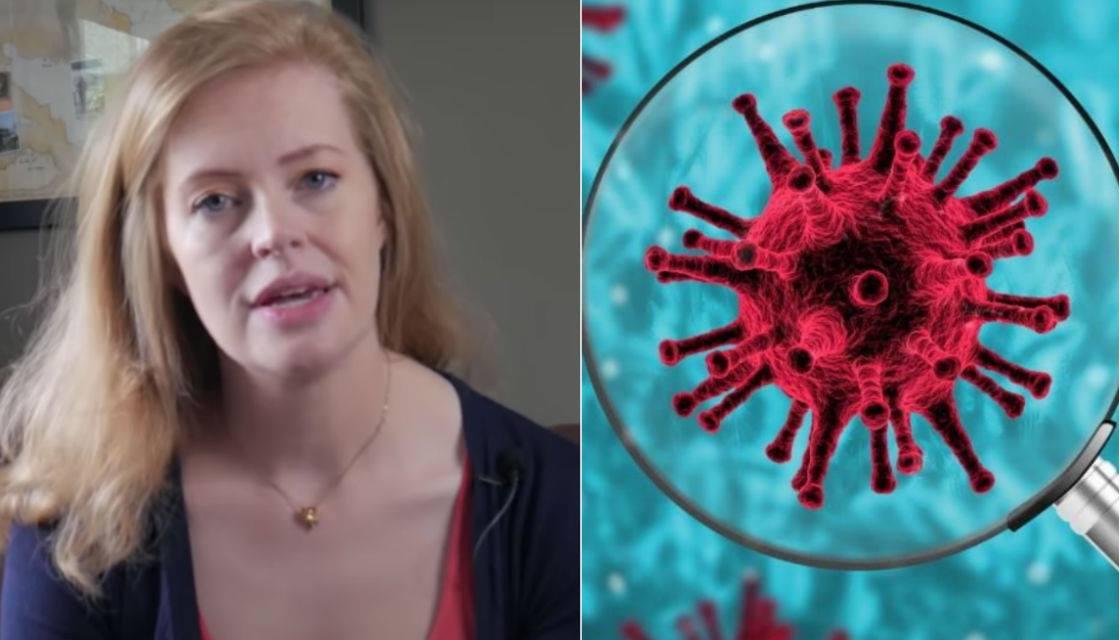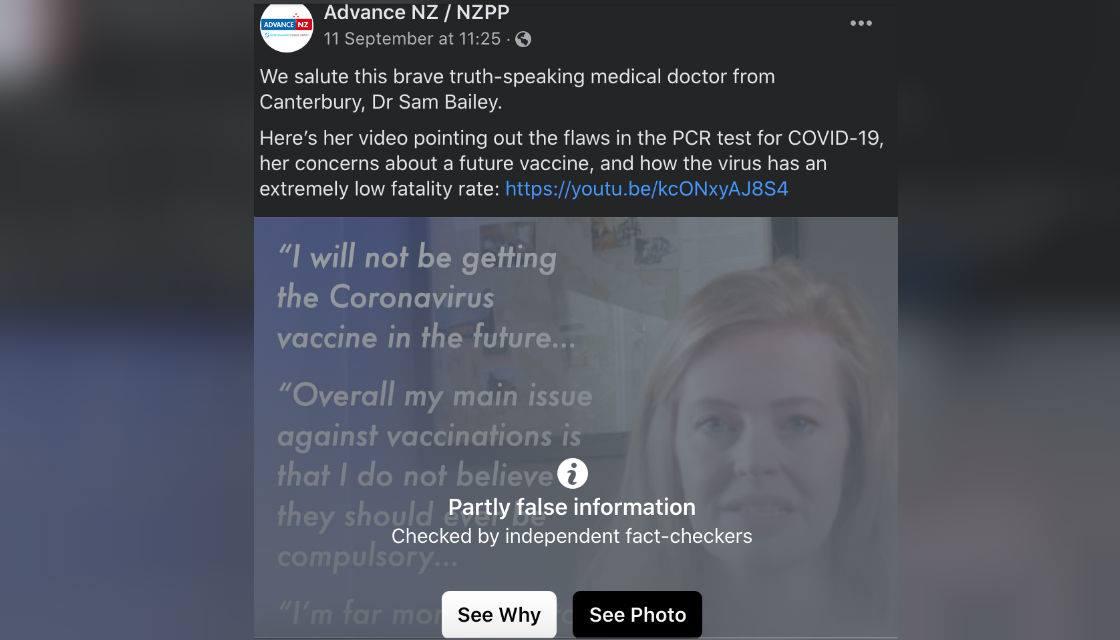
A registered Canterbury doctor has been criticised by experts for spreading misleading information about COVID-19 testing - but praised by the controversial NZ Public Party.
Dr Samantha Bailey posted a video to YouTube in early September claiming the testing method for COVID-19 was inaccurate and medical professionals are "testing incorrectly".
This video was then shared to the NZ Public Party Facebook page where it was interacted with more than 5800 times.
The party, infamous for peddling conspiracy theories, praised Bailey for her views "saluting" her as "brave and truth-speaking". The Facebook post has since been filtered as "partly false information" by AFP fact checkers.

In her video Bailey claims the PCR test used to identify positive cases of coronavirus in New Zealand is flawed “in that it doesn’t test for the virus, it tests for a piece of genetic material that we don’t know the significance of".
Professor of Biostatistics Dr Thomas Lumley told Newshub Bailey is "wrong".
"The test looks for genetic sequences that are only found in the COVID virus, and it has a very low false positive rate," he said in an email to Newshub.
This is backed up by John Mackay, the technical director of testing and diagnostics company Dnature Diagnostics, who told AFP the PCR test "tests for and detects specific RNA sequences to the virus".
"Positive results are confirmed with multiple independent PCR tests to confirm the positive result is due to SARS-2-CoV."
This isn't the only misleading claim peddled by Dr Bailey however - she also claims medical staff are testing inappropriately by using the PCR as a screening test rather than a diagnostic test.
“You might think lots of people have tested positive for COVID-19 who don’t have symptoms? Exactly how can one interpret this?” she asks in her seven-minute video.
“It’s because medical staff are testing people inappropriately, you can’t use a diagnostic test as a screening test,” according to Bailey.
This claim is "simply not true" according to microbiologist Professor David Murdoch.
"Some tests may be better when used for screening, but to say a test can only be used for screening and this test can only be used for diagnosis, is wrong and overly simplistic," he told AFP.
"When it comes to COVID-19 the PCR is the test of choice in both situations."
Lumley agrees, saying while Bailey is correct that some tests are only suitable for diagnosis and others for screening, the PCR is suitable for both.
Bailey's inaccuracies don't stop there - she also implies Auckland's recent outbreak of the virus is related to the testing of asymptomatic people.
"All of a sudden community testing stations were opening up again...this rolled out across the country with pop up testing centres, looking to test people without symptoms.
“Soon enough there were four new cases in Auckland from an unknown source on the 11th of August."
However, as Lumley points out, the person who was identified as the start of Auckland's August outbreak had symptoms.
"It wasn't asymptomatic testing that triggered the second lockdown," he told Newshub.
He also refutes her claim that the Ministry of Health only tested people with symptoms until August.
"There were at least two earlier waves of asymptomatic testing, in April and May, carried out to inform the Cabinet decisions to lower the alert levels."
This was confirmed by a Ministry of Health spokesperson who told AFP asymptomatic testing was carried out “in late April to inform the move from Alert Level 3 to 2”.
“This testing provided reassurance that there wasn’t any undetected spread in the community,” they said.
Bailey told Newshub she supports her claims but has no association with the New Zealand Public Party.
"I have no association with the NZPP/Advance Party and in fact, I am apolitical. I have no intention of supporting a political party or voting in the upcoming general election."
"I stand by my claims and would encourage you to read the latest update by the Australian Government in regards to PCR testing. They have dealt with much larger numbers than New Zealand and you can clearly see that the tests are not performing as is suggested in the AFP article."
"There is limited evidence available to access the accuracy and clinical utility of available COVID-19 tests."
The New Zealand Medical Council told Newshub they were not in a position to comment on Baileys's views but could confirm she is a registered and practicing doctor.



